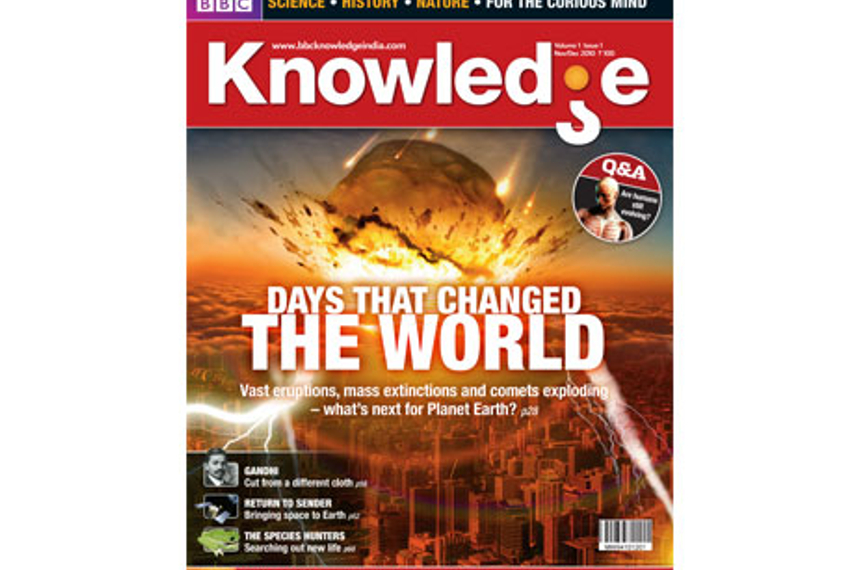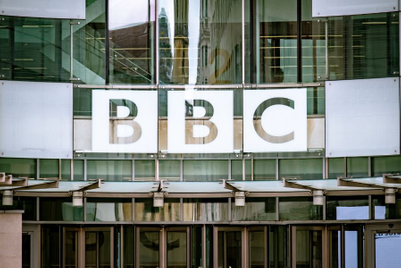
Worldwide Media (WWM) is set to launch its international title BBC Knowledge in India on 1st November. BBC Knowledge’s editorial combines content from three BBC magazines – Focus, History and Wild Life. The title was launched in the United States in 2008 and is targeted at teenagers in the age bracket of 13 to 18 years and their parents. It will be priced at Rs 100 and will be a bi-monthly for the time being. The new title will be edited by Preeti Singh.
In a conversation with Campaign India, Tarun Rai, CEO, Worldwide Media, spoke about the timing of the launch and why the title’s core audience in India.
Read on for the full interview.
Could you take us through the timing of the launch of BBC Knowledge in India? What makes this the right time to bring the title to India?
We had been wanting to launch BBC Knowledge for some time now. But first it got postponed due to the recession and then we had the Lonely Planet launch to concentrate on. The successful launch of Lonely Planet gave us fresh impetus to launch BBC Knowledge. It is a fantastic magazine. It combines the content of three very successful BBC magazines – Focus, History and Wild Life and it has a very simple title that will appeal to the Indian audience. BBC Knowledge was launched in the United States in 2008 and was an instant success.
Who do you see as the core audience for a title like Knowledge in India?
Our research has shown that BBC Knowledge will have a broad appeal. However, we are focusing on two key audiences; teenagers in the age group of 13 to 18 years and their parents. BBC Knowledge tackles issues around science, history and nature in a very accessible way. It is visually rich with some spectacular photo features. Our research with teenagers and with school teachers showed us that the content was truly engaging and the magazine was a fun read. School teachers found that the content adds to what the kids are taught in school and helps develop an interest in the world around them. Our research also showed that adults enjoy reading BBC Knowledge. We believe that parents will buy the magazine for their kids but once it is at home, will read it too. The BBC brand name assures the parents and teachers of the quality of the content.
Who do you see as the core advertisers for a title like BBC Knowledge?
Since, we are targeting teenagers and their parents a broad range of advertisers would be interested in this audience. For targeting teenagers, in particular, there are not many print media vehicles that are available to advertisers. And teenagers are big consumers of brands. BBC Knowledge will, thus, be an opportunity for sports brands, for consumer electronics and computer manufacturers, mobile phones, education institutes, watch brands targeting the younger audience etc. Besides these there would be the other advertisers who could tap the parents of these teenagers. Could you take us through the content break-up of Knowledge. Is there any need for specialized local content in India?The subject matter of BBC Knowledge is pretty universal and not limited to any country. Facts about science, history and nature do not need localization. We are, therefore, going with predominantly international content. However, we will, from the bank of content available with UK, choose what we believe is more relevant to India. At a later date we will consider if any localization is really required.
You’ve chosen to keep Knowledge bi-monthly in India; could you share the reasons for that decision as far as the Indian market is concerned?
We kept it bi-monthly because BBC Knowledge in the United States is a bi-monthly. It was easier, therefore, for us to stick to that frequency. However, the imminent Brazil and Singapore editions are considering a monthly version and the content may be available to us as a monthly. We are keeping the option open to increase the frequency depending on the response.
Are there any Bennett & Coleman synergies that you are likely to leverage as far as promotions go for the launch of BBC Knowledge?
Our magazines are distributed by the Times of India group. As a result, we have an unmatched distribution spread and depth. We will use this distribution strength to reach a large number of cities in the country. The Times of India also has a very successful school program, Newspapers in Education (NIE) with 2500 schools across ten major cities. We are partnering Times of India’s NIE in making BBC Knowledge available to students of these 2500 schools with a very attractive subscription offer. We are very bullish on the success of BBC Knowledge and will be marketing it very aggressively in the coming months.


.jpg&h=334&w=500&q=100&v=20250320&c=1)

.jpg&h=334&w=500&q=100&v=20250320&c=1)

.jpg&h=334&w=500&q=100&v=20250320&c=1)



.jpg&h=334&w=500&q=100&v=20250320&c=1)
.jpg&h=334&w=500&q=100&v=20250320&c=1)




.jpg&h=268&w=401&q=100&v=20250320&c=1)
.jpg&h=268&w=401&q=100&v=20250320&c=1)


